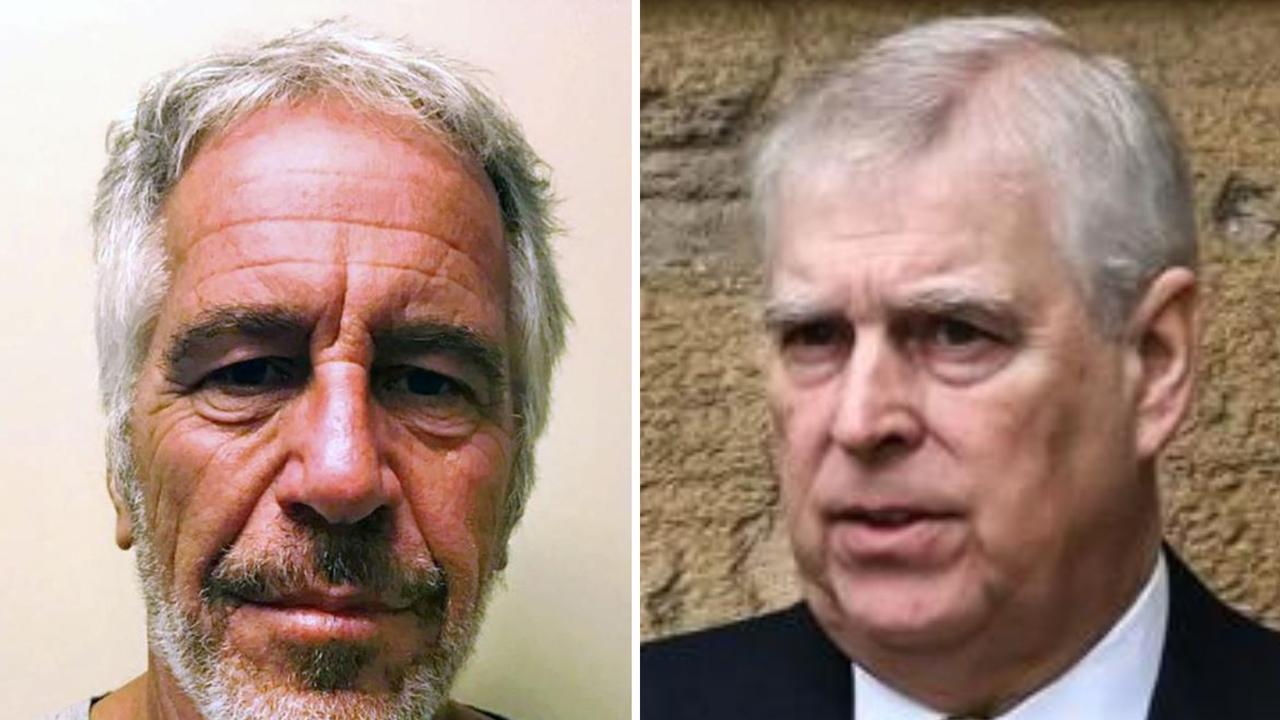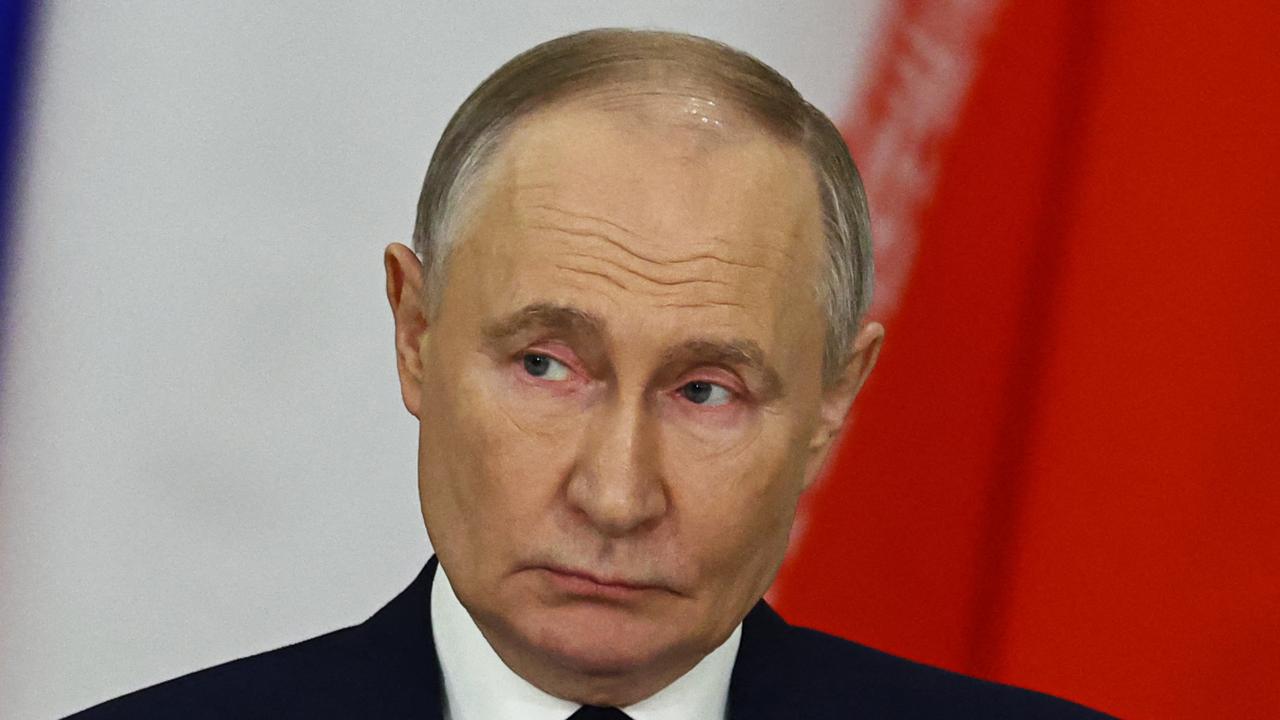Poland accuses Russia of violating airspace as Ukraine bombarded for second day straight
A NATO state has condemned and the Russian military after what appeared to be another massive provocation launched by Vladimir Putin.
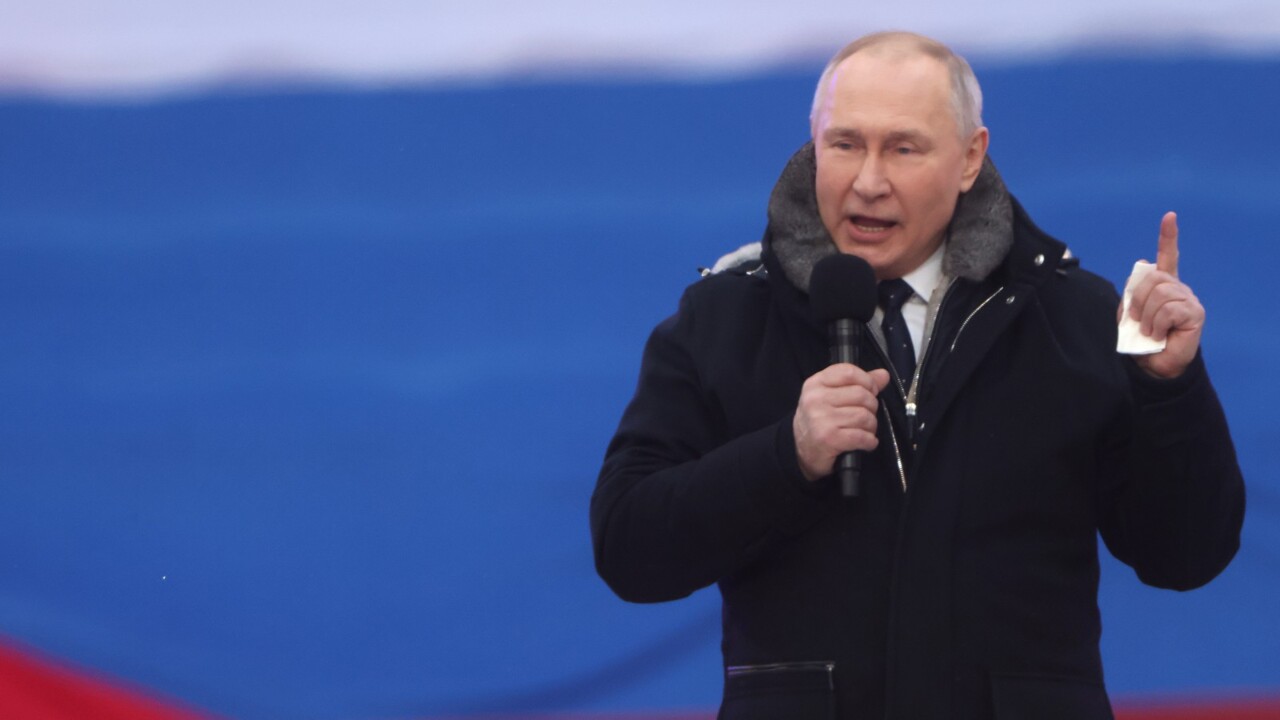
Ukrainian authorities have issued new air raid alerts across the country on as Russian bombers took to the skies a day after Moscow carried out a “massive” attack on the nation’s power grid.
Russia stepped up its offensive this week, firing hundreds of drones and missiles at Ukrainian targets on Monday.
The attacks, which killed at least four people, including a Reuters staffer, had been launched to scatter Ukraine’s already weakened energy grid, officials said.
The Russian attack triggered widespread blackouts and came after Kyiv claimed new advances in its incursion in Russia’s Kursk region.
Ukraine’s air force confirmed early Tuesday the “takeoff of several Tu-95MS from the Engels airfield” in western Russia, prompting air raid alerts across the country.
Three more people were killed in overnight Russian attacks, according to local officials, two in the central Ukrainian city of Kryvyi Rig and one in southeastern Zaporizhzhia.
On Monday, President Volodymyr Zelensky said Moscow launched at least 127 missiles and 109 drones in “one of the largest Russian attacks”.
Of those, 102 missiles and 99 drones were shot down, according to Ukrainian Air Force Commander Mykola Oleshchuk, who described it as Russia’s “most massive” attack.
It came as NATO member Poland said its airspace was violated during the barrage.
“We are probably dealing with the entry of an object on Polish territory. The object was confirmed by at least three radiolocation stations,” General Maciej Klisz, operational commander of the armed forces, told reporters.
Army command spokesman Jacek Goryszewski said it was “highly likely that it could have been a Shahed-type drone” of Iranian design used by the Russian military.
“But this has to be verified,” he said, adding that it could not be ruled out that the drone had already left Polish territory.
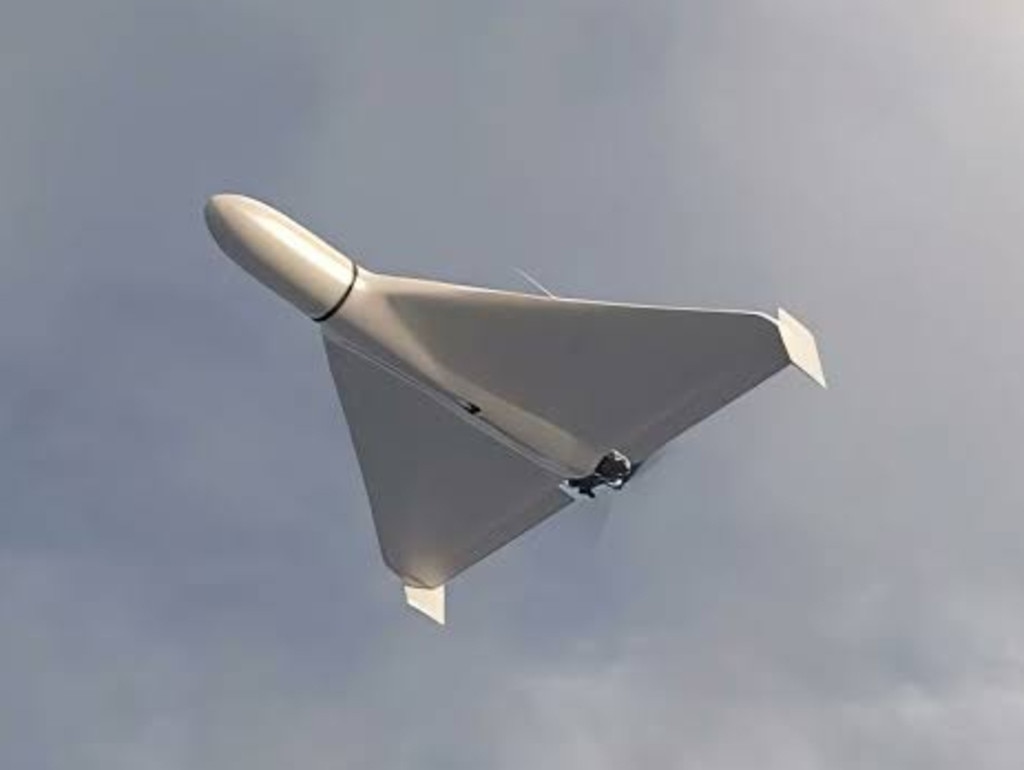
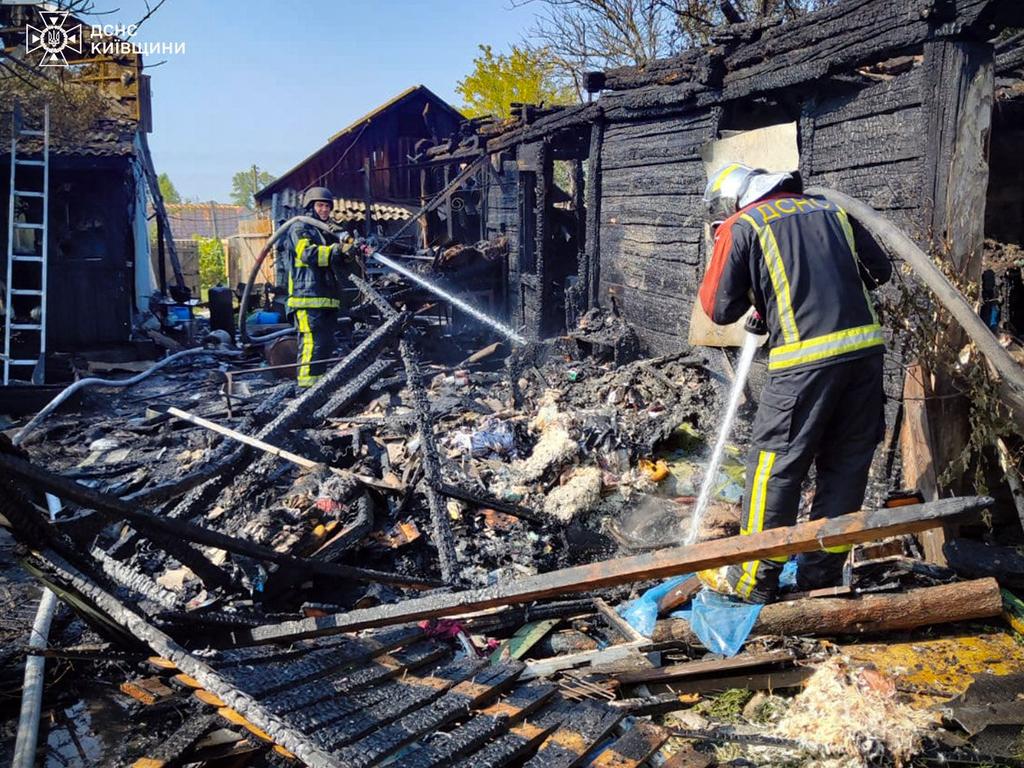
Zelensky called for European air forces to help Kyiv down drones and missiles in the future.
“In our various regions of Ukraine, we could do much more to protect lives if the aviation of our European neighbours worked together with our F-16s and together with our air defence,” Zelensky said in an address.
Andriy Yermak, Zelensky’s chief of staff, said the attack showed that Kyiv needed permission to strike “deep into the territory of Russia with Western weapons”.
Zelensky said Ukraine’s surprise cross-border incursion into Russia’s Kursk region launched on August 6 “is, among other things, a way to compensate for the lack of range”.
On Sunday, he said that the surprise manoeuvre had yielded further advances, albeit small ones.
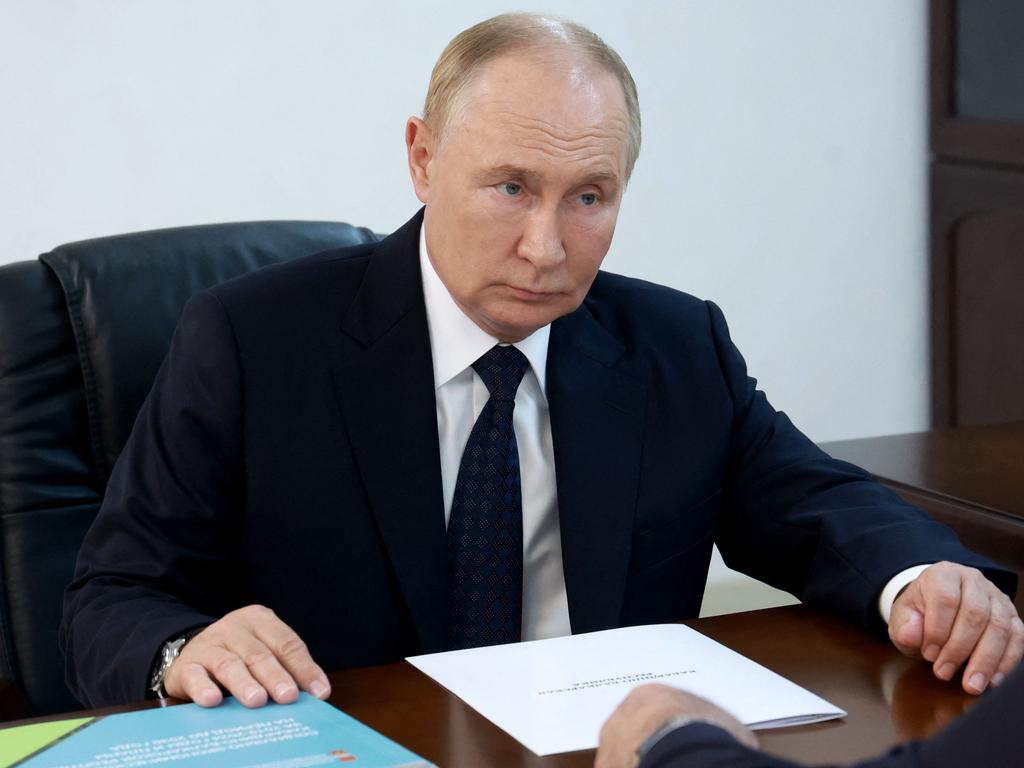
The United States and Britain both condemned the assault, with US President Joe Biden calling it “outrageous” and British Foreign Secretary David Lammy branding it “cowardly”.
Germany’s foreign ministry said that “once again, Putin’s Russia is saturating Ukraine’s lifelines with missiles”.
Western powers are on high alert after North Korea’s Kim Jong-un pledged to strengthen military relations with Russia as the European superpower persists in funnelling billions into its “special military campaign”.
North Korea has already been accused transferring weapons to Russia.
Both Russia and North Korea have denied those accusations while simultaneously pledging to build on their existing relations as tensions continue to mount between major industrialised powers the world over.
Earlier this year, apparent evidence emerged that North Korea has indeed been shipping over missiles.
A 32-page UN report said, “debris recovered from a missile that landed in Kharkiv, Ukraine, on January 2 derives from a DPRK Hwasong-11 series missile”.
Three sanctions monitors had travelled to the bomb site this month and said they “could not independently identify from where the missile was launched, nor by whom”.
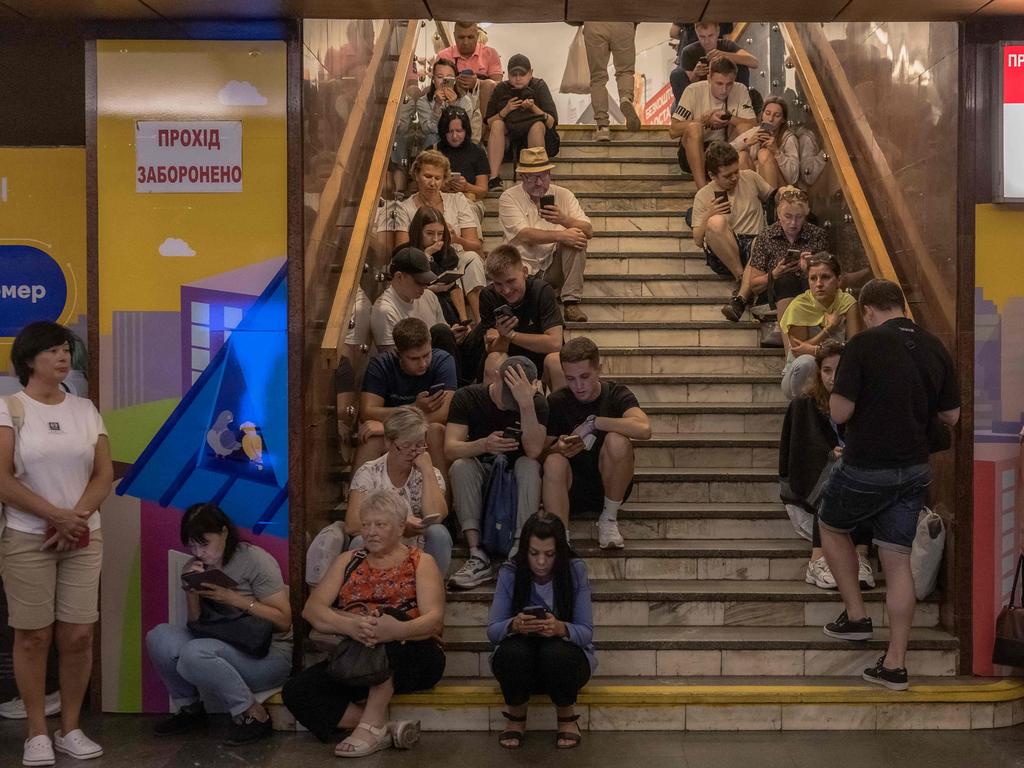
During Tuesday’s attack, residents in Kyiv rushed to take shelter in metro stations early Monday, as AFP reporters heard the booms of what appeared to be air defences.
“We are always worried. We have been under stress for almost three years now,” said Yulia Voloshyna, a 34-year-old lawyer taking refuge in the Kyiv metro.
“It was very scary, to be honest. You don’t know what to expect,” she said. Since invading in February 2022, Russia has launched repeated large-scale drone and missile attacks on Ukraine, including punishing strikes on energy facilities.
The Russian defence ministry confirmed it hit energy facilities in a statement, claiming that they were being used to aid Ukraine’s “military-production complex”.
The attacks early on Monday killed at least four people and wounded over 20 people across the country, officials said.
Two others were killed in later strikes during the day, according to authorities.
Monday’s aerial barrage came after a safety advisor working for the Reuters news agency, Ryan Evans, was killed in a missile strike on a hotel in eastern Ukraine late Saturday.
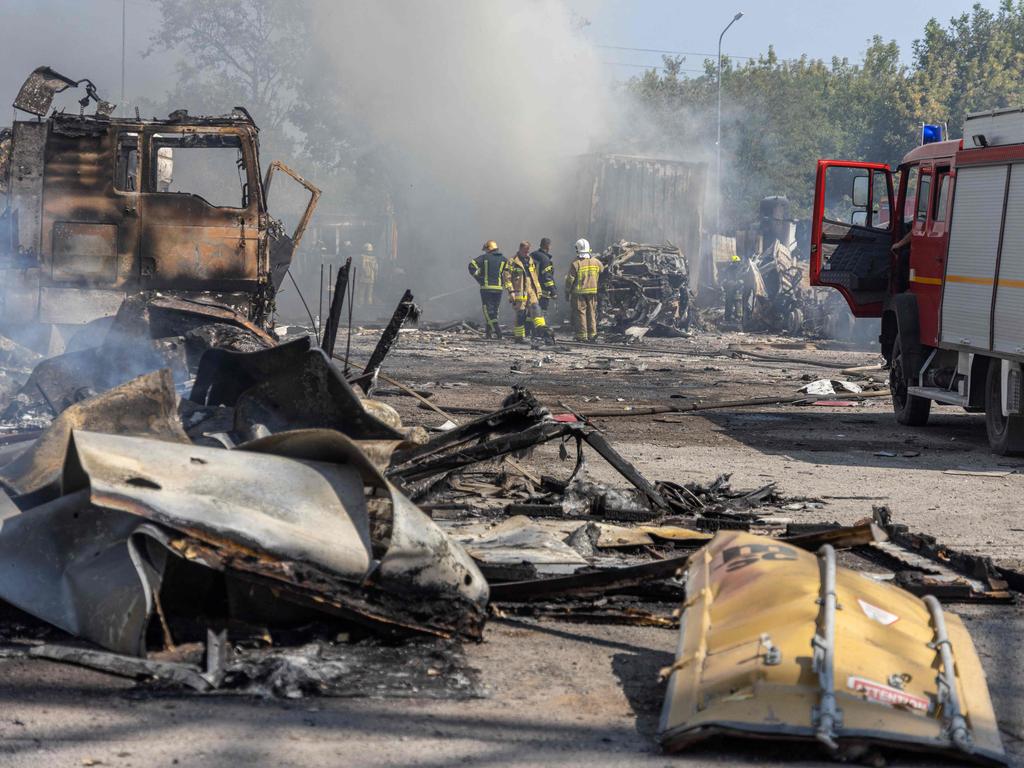
Britain’s Lammy said he was “deeply saddened to learn” of his death. Six of the agency’s crew covering the war were staying at the hotel in Kramatorsk, the last major city under Ukrainian control in the Donetsk region.
The Kremlin said there was “still no clarity” about the strike when asked about Zelensky’s assertion that the attack was carried out “deliberately”.
“I will say it again. The strikes are against military infrastructure targets or targets related to military infrastructure,” Kremlin spokesman Dmitry Peskov said.
Zelensky said defending the logistics hub of Pokrovsk, also in the Donetsk region, was “most difficult” with Ukraine strengthening its positions there.
Over the border, one person died and six others were injured in a fire at an oil refinery in the Siberian city of Omsk on Monday, said regional governor Vitaly Khotsenko.
Authorities did not specify the source of the fire.
Russian media reported loud explosions near the refinery, operated by Russian oil giant Gazprom and about 2,300 kilometres from Ukraine.
Ukraine regularly carries out drone attacks on oil and gas infrastructure in Russia, sometimes far from its border.



